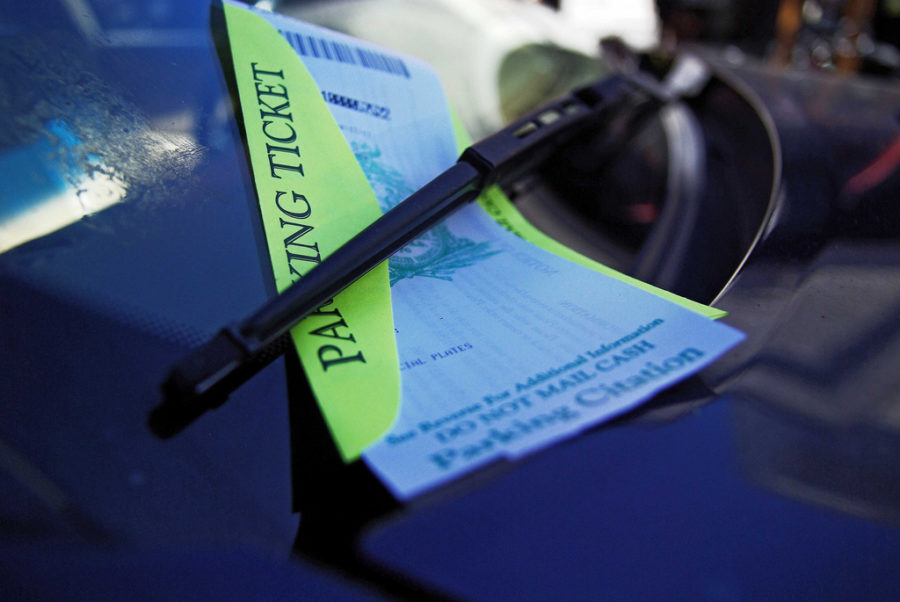‘Donations for Citations’ encourages donating to Pitt Pantry
Charleston’s TheDigitel via Flickr
The Pitt Parking Office will accept donations through the month of December in place of paying for parking tickets received before Nov. 1.
November 20, 2018
The holiday season is a time for giving and receiving — and this year, for every Pitt parking ticket received, students have the chance to give back a little bit.
Just in time for the holiday season, Pitt Pantry and Pitt Parking Services teamed up to garner donations in an unconventional way with their “Donations for Citations” event. The event, which began on Nov. 1, encourages people to donate certain food items to the Pitt Pantry — a local student-based food pantry on Pitt’s campus — in exchange for paying off tickets they received prior to Nov. 1 that total either $15 or $25.
Specific items are required to fulfill the $15 and $25 citation fees. For a $25 fine, the minimum donation required is one 40-ounce-minimum jar of peanut butter and one 32-ounce-minimum jar of jelly. For a $15 fine, the minimum donation required is either one box of pasta and one jar of sauce or two boxes of cereal.
Kevin Sheehy, director of Parking, Transportation and Services, said the donation items were chosen because they are what the Pantry needs the most.
“The parking office looked at the most needed items listed on the Pitt Pantry website and came up with a tiered donation,” Sheehy said in an email. “We have seen a great response and a lot of support for the event.”
In an email statement, Anna Martz, the marketing and communication manager for Pitt Parking Services, said no school in particular inspired the event, but it’s something they’ve seen other universities do. University of Kentucky, Texas A&M and University of California, Riverside host similar programs throughout the year.
According to Sheehy, the event has been a major success so far. As a result, Pitt Parking changed the event’s end date to be through the month of December.
“Due to overwhelming support, we are extending Parking’s Donations for Citations. Through the month of December, the Parking Office will accept food donations as payment for parking citations issued before Nov. 1,” Sheehy said in an email.
According to its website, the Pitt Pantry aims to provide regular access to healthy food options for anyone in the Pitt community earning less than 150 percent of the federal poverty line, or an annual income of $18,090 or less for a single-person household. Items from “Donations for Citations” fully benefit the Pantry.
According to University spokesperson Joe Miksch, there is no current figure on the number of donated items or people who have donated. He said an estimate on how much was raised will likely be available in early December.
On behalf of the Pantry, Miksch also said the University knows from national data that food insecurity across all demographics spikes during the holiday season due to changes in financial allocations, such as spending money on travel and gifts instead of food. But on Pitt’s campus, a majority of students shopping at the Pantry experience less food insecurity during the holidays as they visit family members who provide them with meals.
“The challenge arises when they return to campus and need to restock their cupboards [or] rooms to get ready for spring semester,” Miksch said on behalf of the Pantry in an email. “Frequently [students who don’t travel for the holidays] have been living independently for some time and already have a plan in place, but it’s also okay to need help.”
More than 14 percent of Allegheny County residents are affected by food insecurity, according to the Greater Pittsburgh Community Food Bank. Many face decisions between paying for food, housing, medical care and other basic needs, and some food-insecure Pitt students may struggle with the added burden of class schedules inhibiting their ability to make a stable income.
“Food insecurity is a social issue, and like every social issue the first step to addressing it is understanding it beyond personal lived experience,” Miksch said on behalf of the Pantry in an email. “To successfully address hunger on campus we need to get at the underlying vulnerabilities that affect our food insecure students in a way that is both proactive and holistic.”



